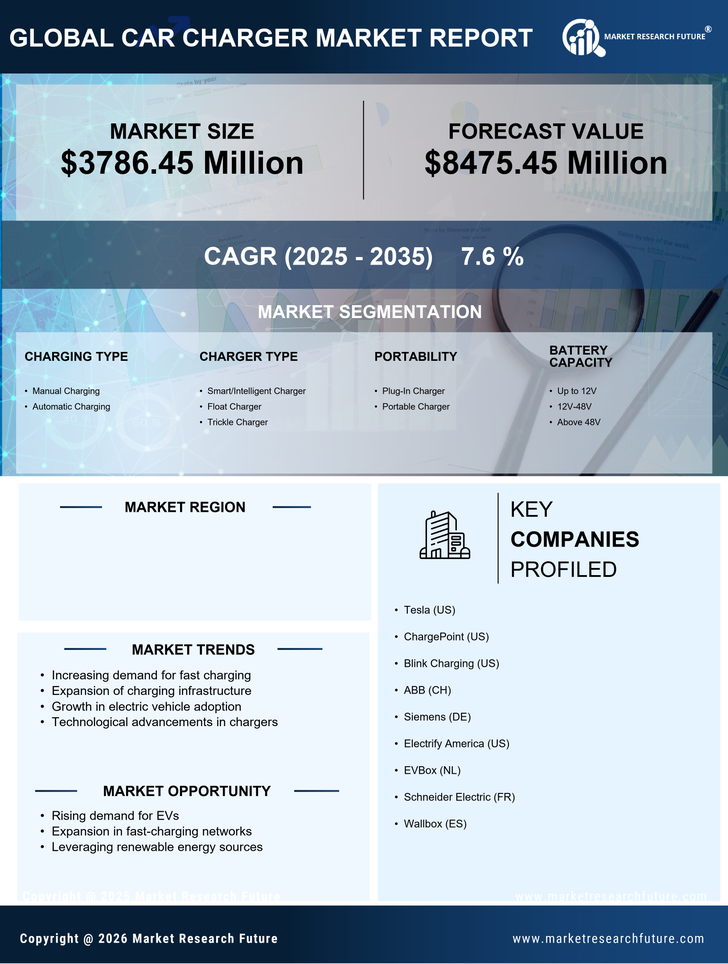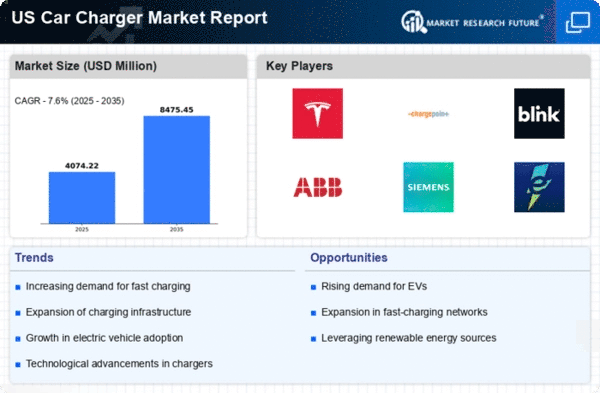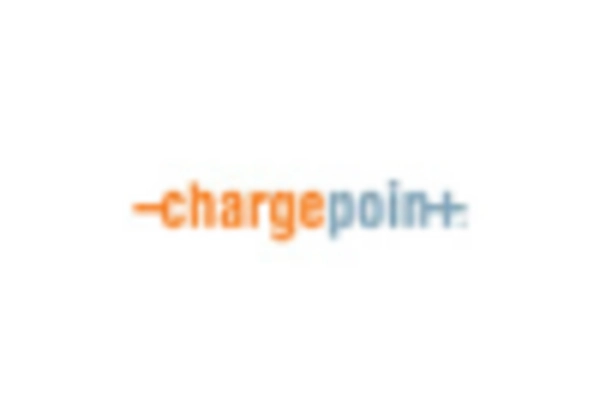Expansion of Charging Networks
The expansion of charging networks across the US is a significant driver for the car charger market. As more charging stations are installed in urban and rural areas, the accessibility of charging solutions is improving, which is essential for the widespread adoption of electric vehicles. Major players in the automotive and energy sectors are investing heavily in building extensive charging networks, with estimates suggesting that the number of public charging stations could exceed 100,000 by 2025. This growth not only alleviates range anxiety among potential EV buyers but also fosters a competitive landscape in the car charger market. The increased availability of charging infrastructure is likely to encourage more consumers to consider electric vehicles, thereby further propelling the demand for car chargers.
Consumer Awareness and Education
Consumer awareness and education regarding electric vehicles and charging solutions are pivotal in driving the car charger market. As more information becomes available about the benefits of EVs, including lower operating costs and environmental advantages, consumers are becoming increasingly interested in making the switch. Educational campaigns by manufacturers, government agencies, and environmental organizations are helping to demystify electric vehicle technology and charging processes. This heightened awareness is likely to lead to increased consumer confidence in purchasing electric vehicles, which in turn drives demand for car chargers. The car charger market stands to benefit from this trend, as informed consumers are more likely to seek out reliable and efficient charging solutions, thereby contributing to market growth.
Growing Electric Vehicle Adoption
The increasing adoption of electric vehicles (EVs) in the US is a primary driver for the car charger market. As consumers become more environmentally conscious, the demand for EVs has surged, with sales reaching approximately 1.5 million units in 2025. This trend is expected to continue, with projections indicating that EVs could account for over 30% of new vehicle sales by 2030. Consequently, the car charger market is experiencing heightened demand, as more charging stations are required to support this growing fleet of electric vehicles. The expansion of the car charger market is further fueled by government incentives and rebates aimed at promoting EV adoption, which enhances consumer interest and investment in charging infrastructure. This dynamic interplay between EV sales and charging solutions is likely to shape the future landscape of the car charger market.
Government Regulations and Policies
Government regulations and policies play a crucial role in shaping the car charger market. In the US, various federal and state initiatives are being implemented to promote the use of electric vehicles and the necessary charging infrastructure. For instance, the Biden administration has proposed significant investments in EV charging networks, aiming to install 500,000 new chargers by 2030. Such policies not only encourage manufacturers to innovate in the car charger market but also create a favorable environment for private investments. Additionally, regulations mandating emissions reductions are pushing automakers to produce more electric vehicles, thereby increasing the demand for charging solutions. The car charger market is thus positioned to benefit from these regulatory frameworks, which are likely to drive growth and innovation in the sector.
Technological Innovations in Charging Solutions
Technological innovations are transforming the car charger market, enhancing the efficiency and convenience of charging solutions. Developments such as ultra-fast charging technology, which can charge an EV in under 30 minutes, are becoming increasingly prevalent. This advancement is crucial as it addresses consumer concerns regarding charging time, thereby encouraging more individuals to transition to electric vehicles. Furthermore, the integration of smart technology in charging stations, such as mobile app connectivity and real-time monitoring, is improving user experience and operational efficiency. The car charger market is witnessing a shift towards more sophisticated charging solutions, which not only cater to the needs of consumers but also align with the growing emphasis on sustainability and energy efficiency. As these technologies continue to evolve, they are likely to drive further growth in the market.

















